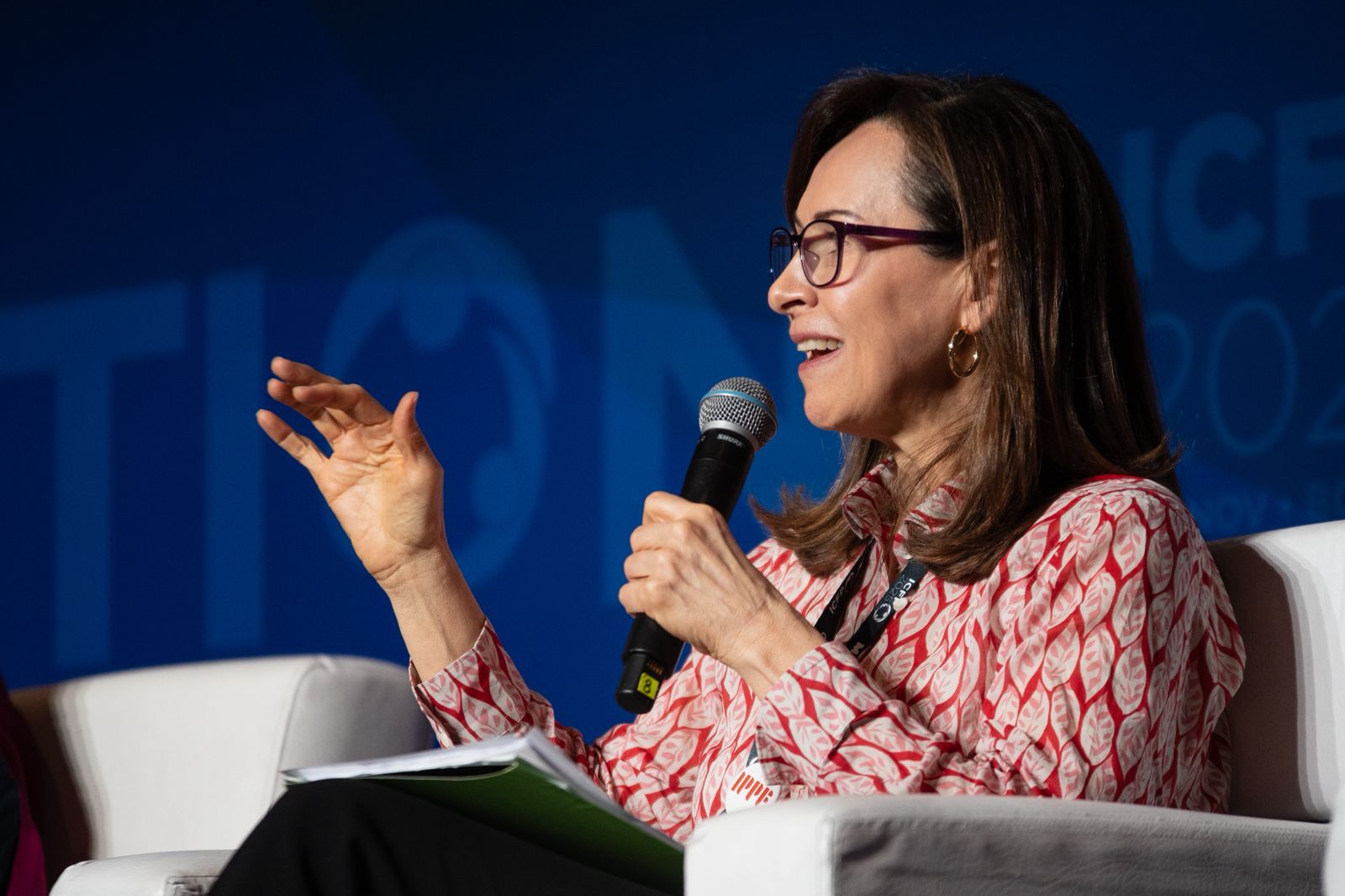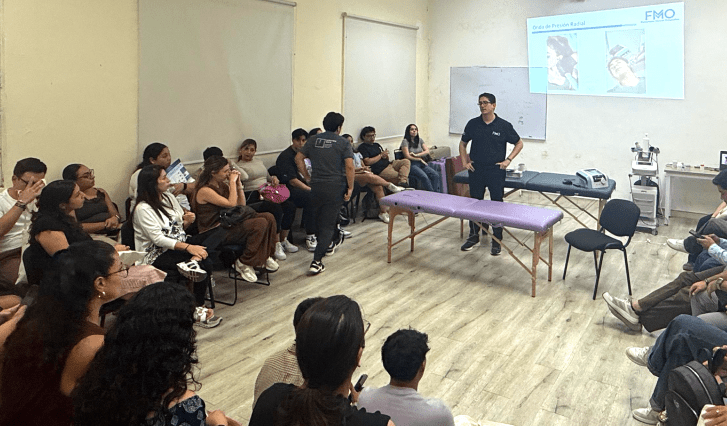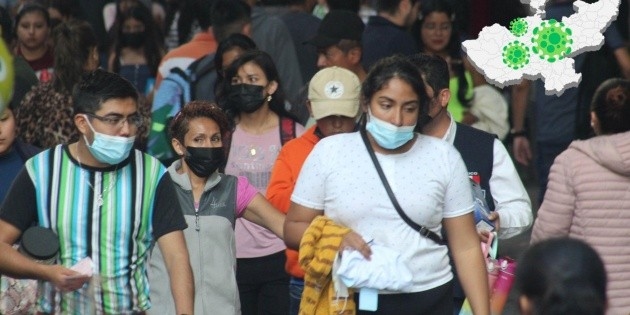'The biggest challenge in sexual and reproductive health in Colombia continues to be reaching all territories': Marta Royo, executive director of Profamilia

Bogotá was the setting where local and international governments, foundations, universities, and international organizations gathered for the ICFP (International Conference on Family Planning), a global platform and movement that brings together diverse stakeholders to promote sexual and reproductive health. All of this took place amidst the greatest global underfunding this agenda has faced in recent years, with a projected deficit of $1.5 billion by 2030.
EL TIEMPO spoke with Marta Royo, executive director of Profamilia —one of the host organizations— about what this defunding represents for Colombia, the challenges to guaranteeing access to information and contraceptive methods, and the factors that still make it difficult for voluntary termination of pregnancy to be affordable in all territories of the country.
What does this event mean, and what are the implications of it being held for the first time here in Colombia?
Marta Royo during a conference at the ICFP. Photo: Courtesy of Profamilia
This event is the most important globally on the subject of sexual and reproductive rights , because it brings together the world of academia, the scientific community, the medical sector, civil society movements and organizations, NGOs, cooperation agencies, donors… all those actors focused on discussing what the progress has been and what the challenges are at a global level from the point of view of sexual and reproductive rights.
More than 3,600 people, more than 600 young people from different countries in Africa, Asia, Latin America, and the Arab world. That's what this conference has been. And what does it mean for Colombia? An extraordinary opportunity, an opportunity to show how this is a country that, in the midst of enormous difficulties, has managed to advance a very robust agenda of sexual and reproductive rights. We have a good legal framework.
So, I think it was an opportunity for Colombia to showcase itself, to demonstrate its medical, scientific, advocacy, and educational expertise… and to knock it out of the park. It's the first time the conference has been held in a Latin American country.
How is Colombia dealing with the underfunding of sexual and reproductive health, and why is this happening? There are many factors. There are difficulties within the healthcare system, there is violence in our territory, and there is a cultural issue and stigma that generates misinformation and makes it more difficult for young people to access services or information. In addition, many things related to social and reproductive rights have begun to disappear from global cooperation agendas. We saw how diversity, equality, and equity programs vanished, and this is compounded by the dismantling of USAID.
Reproductive rights concern everyone, and there isn't a single person who isn't affected by them. Right now, we're experiencing a crisis of cooperation, and Colombia, which used to be one of the countries receiving the most international aid, is going to be affected by this.
What do you consider to be Colombia's biggest challenge in sexual and reproductive health today? The first challenge, definitely, is coverage. In Colombia, there are still many areas that are difficult to reach. We try to reach them through 4,000 mobile brigades a year, but it's too expensive, not only financially: our teams have to travel to these places by mule or on foot. Therefore, it's difficult to offer in these territories what is offered, for example, in a city like Bogotá. Another challenge is violence and teenage pregnancy. The last major challenge is getting information to the entire population so that young people know their rights, how to access contraception, or how to access a voluntary termination of pregnancy.
In Colombia, access to contraceptives remains unequal. What factors are preventing the country from guaranteeing real access? In Colombia, we have the entire portfolio. We offer everything from generics to brand-name contraceptives: long-acting, medium-acting, injectable, hormonal methods … we have access to everything. But the problem is that it's difficult to reach many areas.
When they do arrive, they often receive a contraceptive method that may not be the one that woman needs, but rather a different one. Therefore, we frequently find a lack of consistency in the provision of the contraceptive method that the woman actually needs , and also difficulties in obtaining a medical appointment.
From Profamilia's perspective, how do you assess the implementation of C-055 (the ruling that decriminalized abortion up to the 24th week)? What are the most persistent barriers? This ruling has been extraordinary. It has guaranteed that women can access safe, quality, timely, and supported abortion services, and most importantly: without penalty.
But it has also highlighted the system's shortcomings. The challenges involve training more personnel. The goal is that today, in every municipality in Colombia, we can find at least one service provider who is trained and capable of offering the service.
We still have healthcare providers (IPS), clinics, and hospitals that feel entitled to deny women service and fail to explain the available options for accessing a voluntary termination of pregnancy. These clinics simply create barriers and delays to the service.
What is the current state of access to contraceptive methods for the migrant population? There are many programs for the migrant population. I feel the government has made a significant effort to ensure migrants can register, obtain all necessary travel permits, and access services. However, this is a very transient population, constantly moving and not settling down, so they risk being left out. Even so, we have comprehensive coverage, we're part of the healthcare system, and we have greater access than other countries in the region, but there are still very difficult areas that we try to reach through mobile health teams.
What is the role of technological innovation in closing gaps for rural women? Without a doubt, I want to emphasize once again the importance of information. Today, we are digital beings, constantly accessing data through tablets and phones. Therefore, we must continue working diligently on the quality of information circulating online.
I would also say that we need to innovate, for example, in telemedicine mechanisms. I think we can reach many of these rural areas through a model where consultations are done remotely and diagnostic images are sent. There are countless fantastic tools available. Everything related to digitizing medical records, making them accessible; how we record information; and how we compile statistics from mobile teams.
Are there any current data on sexually transmitted diseases that should concern the country? We are waiting for the National Demographic and Health Survey to be released to have more concrete figures. What we have seen at Profamilia is that we are seeing an increasing number of positive test results, but this could be because there is greater access to testing or because there is difficulty accessing quality information about STI transmission.
My invitation is for us to continue working and committing to the defense of social and reproductive rights , for people to be well informed, to use correct, timely and quality information mechanisms and to make their decisions based on that, not on what they read on social media.
eltiempo



